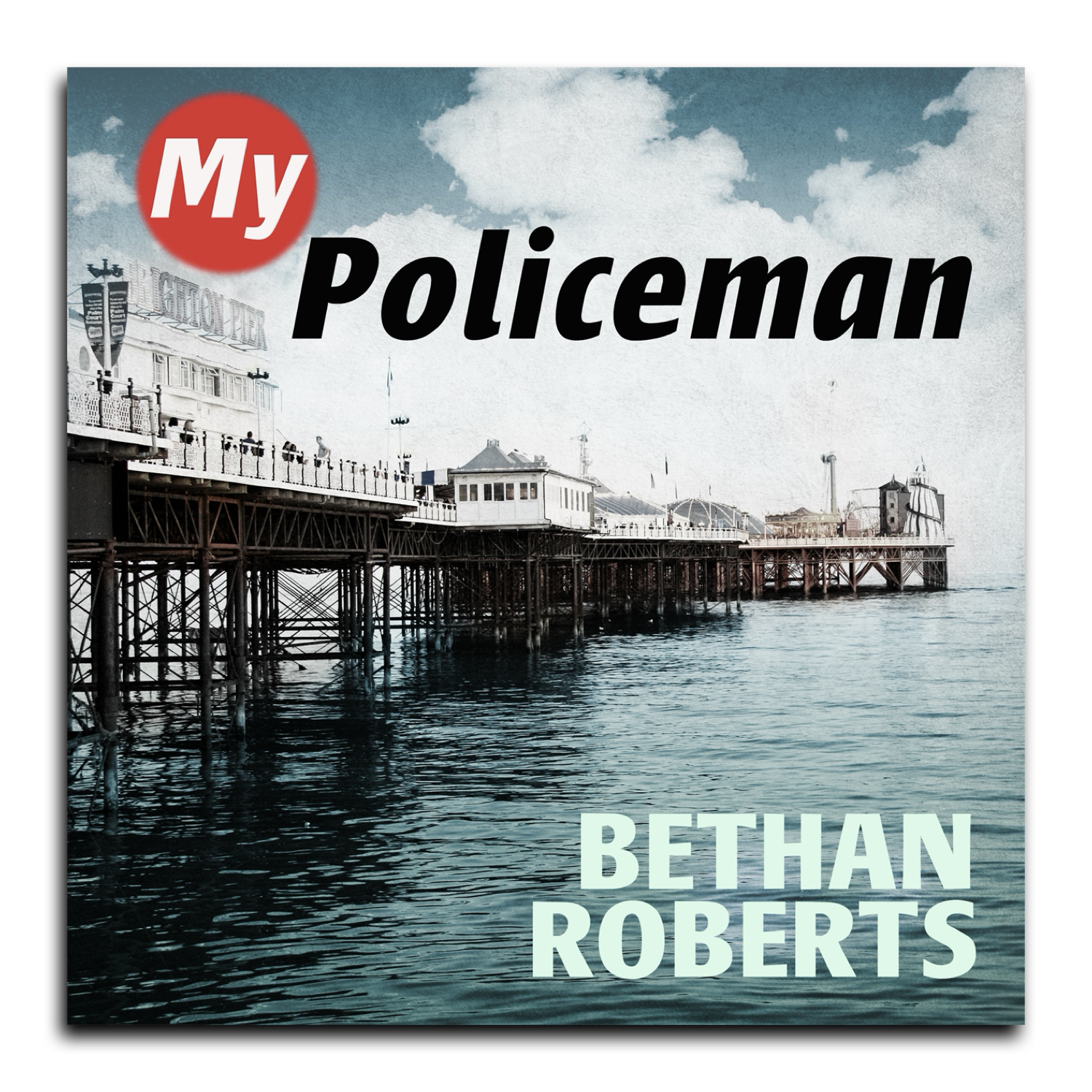My Policeman by Bethan Roberts
My Policeman is a tragic tale that plays with identity, understanding, society, and self-acknowledgement.
As a teen, Marion falls for her best friend's older brother, Tom — blue-eyed, blond, and broad-shouldered. After completing their respective studies, the two reconnect. Marion has studied to become a teacher, and Tom has taken on the career of a policeman. With their reconnection, Marion's only imagined future comes to be with Tom as her husband. However, given the times and atmosphere in which Marion was raised, she fails to see the signs that she is not the one for Tom. As she blindly pushes forward, her inability to fully grasp, articulate, and acknowledge Tom's sexuality is only rivaled by his own determination to live a "normal, adjusted" life.
Through the diaries of Tom's lover, Patrick — curator at the Brighton Museum, we learn of their clandestine relationship. As they try to maneuver around the laws that outright make displays of their love illegal, the two men work hard to maintain the façade, while also trying to fully acknowledge their own desired paths.
Roberts makes an interesting choice by delivering this narrative in an epistolary format. Marion's written account, almost like a memoir, comes from four decades later as she nurses Patrick post-stroke, paired against Patrick’s diary from the 1950s. Both formats serve the characters as confessionals of a kind, page upon page of an outpouring of explanations and self-reflection that is pure but naturally selfish. It's defensive and pleading. Know me. Understand me. Forgive me. In that desperation and through their plaintive reasoning, the two become knowable and relatable.
Another defining characteristic of this narrative is that Roberts never gives the responsibility over to Tom. He's the object of desire, the title of the book, rather than allowed a voice of his own. And yet — he is there. Maybe not fully, but not only is he there through Patrick and Marion, but hidden a layer above the story. Tom exists within the story and without; Tom is the story — the conflict, the pain, the deliverer, the desire, and the lover.
With all three, Roberts has an incredibly solid sense of character. The distance from the story, provided by the stepped-back epistolary format, is an advantage here for both narrators. The separation from the reader to the story, and from the Marion's perspective to the past, relays a sense of change, self-awareness, and weight to Marion's deluge. Patrick's more intimate diary entries don't have the benefit of years' hindsight, but are more raw and earnest, despite often being layered by the playful language Patrick uses as a shield.
His diary is where we first hear Tom referred to as my policeman. While it would be easy to paint either Marion as a villain of sorts, through her harmful methods and decades' worth of a lack of self-awareness, or Patrick, with his seductive lure reeling in Tom — the true villain is, of course, the system that existed to make the actions of expressing love for two of this trio, illegal and punishable by law.
Audiobook, as narrated by Piers Hampton and Emma Powell: Hampton and Powell did absolutely exquisite jobs of bringing these characters to life. Through the phenomenal writing of Roberts and their stellar performances, not only did Marion and Patrick come alive, but — as intended — so did Tom.

